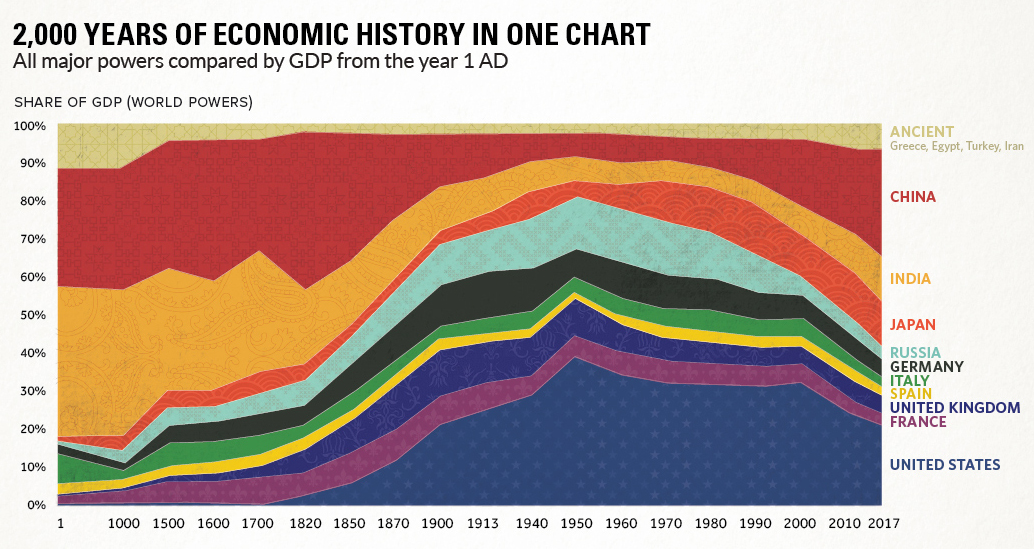Nation, economics, and religion are among the most crucial aspects of human society. A nation is a large social organization with a collective identity based on features such as language, ethnicity, history, culture, territory, and society. A nation is essential for safety and security, enabling individuals to carry out their day-to-day activities. These daily survival activities lead to the formation of an economic system.

Every human activity has economic implications, and any transaction between two individuals can be expressed in terms of the economy. In early human history, agriculture, religion, and war were the most significant economic activities. Religious celebrations and pilgrimages, involving peaceful mass movements of people, also have substantial economic dimensions. Why has religion, one of the largest human mobilizers in history, been excluded from economic considerations? If religion peacefully contributes to the economy, why is its role in the well-being and prosperity of humanity and nations denied?
To understand this, we need to delve into the history of the relationship between nation, economics, and religion. Looking at the map of Europe reveals that northern Europe is dominated by Christian countries, while southern Europe is dominated by Islamic countries. Before Christianity and Islam, Europe was dominated by hundreds of pagan religions whose followers were destroyed, killed, or converted by Islamic zealots and Christian crusaders. Subsequently, Christians and Muslims engaged in crusades, killing each other for control over Jerusalem, a holy place for three religions: Christianity, Islam, and Judaism, an ongoing conflict. These crusades led to divisions within Christianity (Protestant and Catholic) and Islam (Shia and Sunni). For ambitious landlords, religion became the easiest way to gather people, wage war, loot, and share.
In the western world, humans used their religion to conquer other countries. In their zeal to spread their religion, humans often forgot the main purpose of religion. Instead of religion controlling the greed and fear of humans, it became a means to satisfy their needs and greed. This transformation occurred rapidly in the western world due to harsh living conditions, constant fighting among tribes, and a shortage of fertile lands. These conditions limited the number of enlightened individuals and saints. The religious scriptures in the western world did not allow any alterations or commentary, giving undue powers to priests and Maulaanas.
Megasthenes, an ancient historian sent by Seleukus Nicator to Chandragupta Maurya’s courts, noted that, unlike the west, farmers and traders were not harmed during wars in India and China. These regions practiced Taoism, Hinduism, Buddhism, Jainism, and hundreds of sects and subsets. Unlike their western counterparts, landlords and rulers in India and China did not kill common masses and farmers of enemy countries within the subcontinent, and their religious practices were not demeaned. Religion in this part of the world served as a means of generating and spreading livelihood, acting as a significant socio-economic balancer. Even common masses were allowed to write and comment on religious scriptures, and interpretation and commentary were open to anyone.
Despite connections between the East and West, a lot of movement taking place between them, and India and China controlling almost 80 percent of the world economy until 1700, the dynamics changed with the advent of Christianity and Islam. Islamist expansion driven by greed and Christian expansion motivated by guilt led to the rapid spread of these religions. Religion became a means to justify conquering, looting, rape, enslavement, and the acquisition of luxuries, departing from its original purpose as a restraint on the human mind. With increased mobility, advanced war machines, and the discovery of gunpowder, Islamic rulers moved eastward through land, while Christian rulers sought to reach the east through sea routes.
Christians discovered new lands like South and North America, Australia, and others in search of India. These discoveries brought vast knowledge and wealth during the early modern ages. Christians converted native populations of acquired lands into Christianity, while Islamic invaders from Arabia converted significant populations in the Arabian Peninsula, the Middle East, the Indian Peninsula, and Indonesia. Unlike major Eastern religions with numerous festivals woven into their cultural fabric, Christianity and Islam had fewer festivals. A substantial population in the East was dependent on religious activities, whereas the European subconscious had a negative experience with religion.
In the modern era, after the discovery of the New World, religion was viewed as detrimental to the progress of nations. America, predominantly populated by Protestants who rebelled against the dominant church, witnessed two world wars among Christian countries fighting for control of looted resources acquired from Asian, African, and American colonies. These wars claimed millions of lives, and post-war America emerged as the most powerful and dominant country globally.
Thomas Jefferson, an American philosopher, statesman, lawyer, and President from 1801 to 1809, coined the term “separation of church from religion.” Now, the constitution became the religion for the nation, and the separation of state from religion became the central idea of secularism and Marxism. Later, Karl Marx described religion as the opium of the masses, and Adam Smith became the father of modern economics. Somewhere in between, religion became perceived as an evil force with no role in economics. Success and progress were measured by a nation’s exploitation of Earth’s natural resources and the production of war machines.
In India, the State Bank of India has stated that the construction of the Ram Mandir and other tourism initiatives could contribute up to Rs 20,000–25,000 crore to Uttar Pradesh’s tax revenue. The temple is also expected to contribute to the state’s tourism industry, which could reach Rs 4 lakh crore by the end of the year. The temple’s construction is also expected to boost the local economy by creating jobs and increasing consumption. The government has earmarked INR 85,000 crore for infrastructure projects in the city, including highways, roads, water, and power projects.
Considering the above, world thinkers must reexamine various religions, economic systems, and their inclusion in the economics of nations.
Author : Vinod Kumar Ojha
Date : 26 Jan 2024



